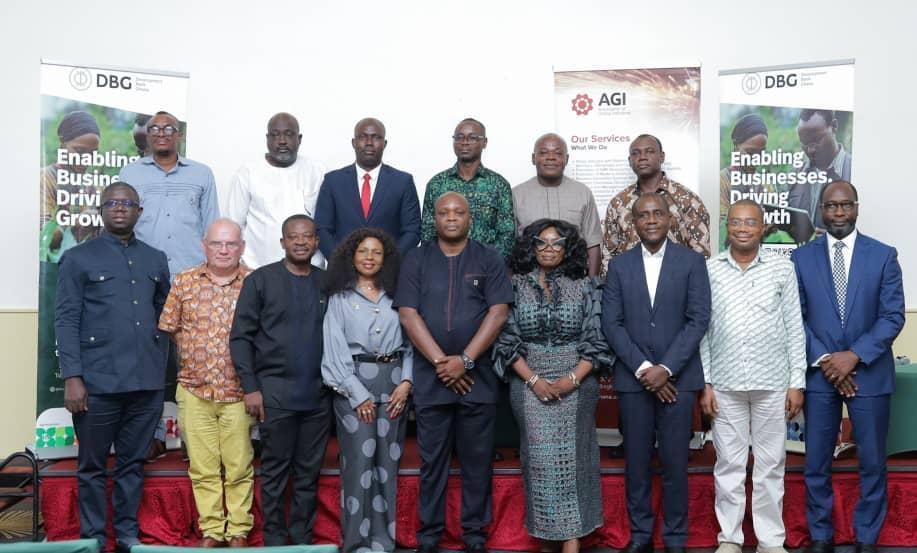Africa-Press – Ghana. The Ministry of Trade, Agribusiness and Industry is in the process of finalising the Ghana Textiles and Garments Manufacturing Policy.
The policy envisions the creation of a well developed textiles and garments value chain with the potential to accelerate Ghana’s industrialisation, export diversification and create massive employment opportunities, especially for youth and women.
Dr Noah Tumfo, Chief Director, Ministry of Trade, Agribusiness and Industry said this at a policy dialogue on textiles and garments industry in Accra.
The dialogue organised by the Development Bank Ghana (DBG) in collaboration with Association of Ghana Industries (AGI) was on the theme: “Revamping Ghana’s Textiles and Garments Industry-The Challenges, Pitfalls and Opportunities.”
The dialogue was to discuss and identify key policy bottlenecks, pitfalls and opportunities within the textile and garment industry.
It aimed at formulating policy recommendations to accelerate growth in the sector.
It was also part of DBG’s broader initiative of supporting SMEs and PFIs in the textile and garment value chain through technical assistance and capacity building.
He said the industry was faced with myriads of challenges that had hindered the country’s ability to harness its full potential.
“As industry players and stakeholders, we all know these challenges and I may not want to bother you repeating them,” he added.
He said the policy was to address these challenges and create a dynamic environment to attract investment into the industry.
The Chief Director said the policy sought to address the challenges of the industry through various prescriptions under nine thematic areas.
These are fiscal and regulatory framework, textiles and garments industry, aggregation, market access and investment promotion, raw material development and secularity, trade facilitation and infrastructure development among others.
He expressed the hope that the outcome of the dialogue would further inform and enrich the draft policy.
Dr Tumfo said in addition to this, the government would soon be outlining a carefully crafted package for the implementation of the 24-hour economic initiative which industry can take advantage of.
He said under the government’s big push agenda, the development of garments and textiles park had been prioritised.
The Chief Director said these parks were expected to have plug and play shelves which would cut down the lead time for establishing garment factories and also the difficulties in identifying suitable sites for factory construction.
Dr Randolph Nsor-Ambala, Chief Executive of DBG, assured stakeholders of the bank’s commitment to supporting practical outcomes with financing arrangements and technical assistance.
He said DBG offered a platform for crowding in needed investments to be able to unleash the full potential of the industry.
He said textiles offered more than just products, most important, it offered a great opportunity for the consumers, because it was a large entrepreneurial company for vulnerable people.
He said the focus was on unleashing the potential of the textile industry to be able to achieve the benefits associated with it.
“DBG stands at the forefront of Ghana’s development agenda not just as a financier, but as a long-term driver of structural transformation,” he added.
He said through partnerships, policy alignment, and inclusive finance, DBG was laying the groundwork for a competitive and resilient economy.
“This dialogue on the textiles and garment industry is part of our wider mission to catalyse sustainable industrial growth across the country,” he added.
Dr Humphrey Kwesi Ayim Darke, AGI President, urged the government to deliver a stable, export-oriented incentive regime, arguing that manufacturers were poised to invest once clear rules were in place.
For More News And Analysis About Ghana Follow Africa-Press







